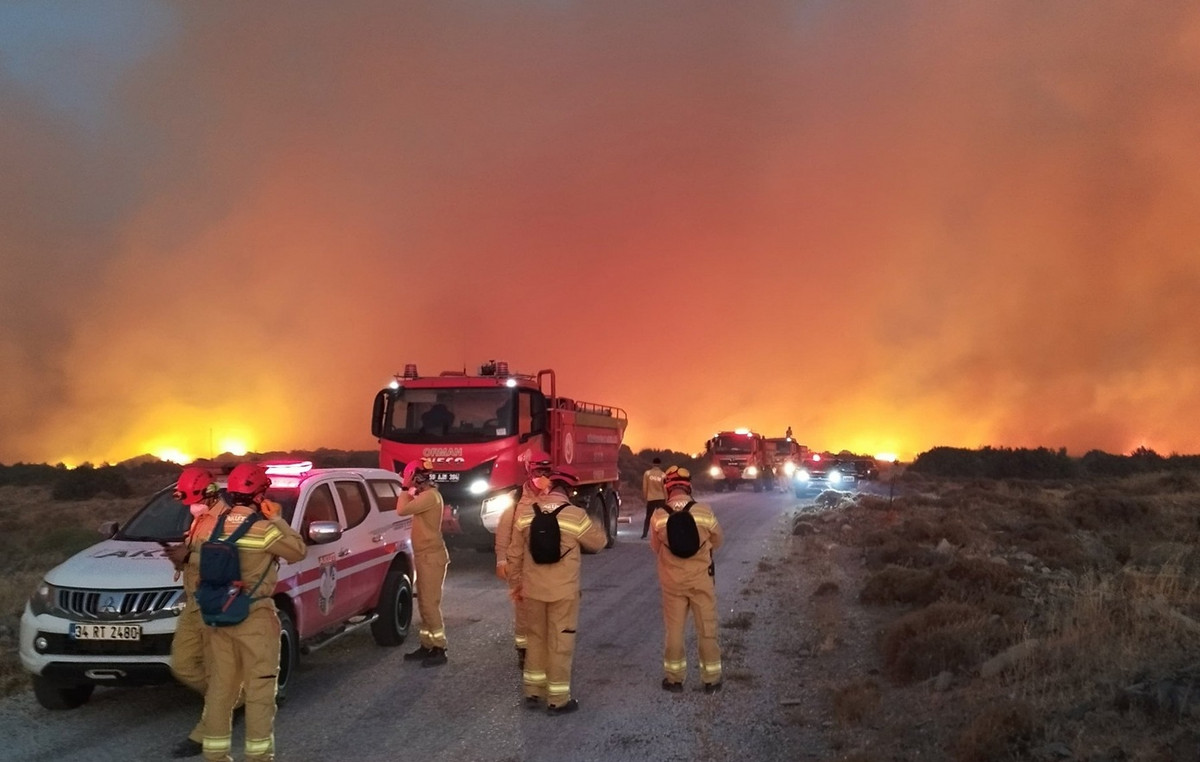Sixty years after the signing of the Évian Accords, which allowed for a ceasefire in the war between France and Algeria and led to the independence of this former North African colony, this bloody conflict still divides French society.
France, considered the cradle of human rights for having created the first declaration in 1789, which later became universal, systematically practiced torture against the Algerian population during the war, which lasted more than seven years, from 1954 to 1962. There was also great violence on the part of French forces in the period of colonization, which began in 1830.
The number of Algerian casualties during the war is the subject of disagreement. France estimates between 250,000 and 400,000 people, most of them fighters from the National Liberation Front (FLN), while the Algerian state estimates that there were up to 1.5 million dead.
In a speech at the Élysée Palace on Saturday (19), during a ceremony to celebrate the 60th anniversary of the agreements that ended the war in Algeria, President Emmanuel Macron highlighted the need for “work on the truth” regarding history. . “We cannot take the risk of letting history be falsified.” He recalled that the current war in Ukraine “is based on the construction and falsification of the contemporary history of the region.”
The Algerian war was part of a decolonization movement that affected western empires after World War II. In 1954, when war broke out in that colony, France had just lost a historic battle in Indochina, which led to the French withdrawal from present-day Vietnam.
This French defeat in Indochina was an encouragement to other colonized peoples and the Algerians unleashed in 1954 an insurrection to obtain independence. Experts point out that the French army used torture as a weapon of war in Algeria.
Even before the start of the conflict, the French armed forces had already carried out massacres in Algeria. The best known was that of Sétif, a violent repression against an uprising carried out by nationalist and anti-colonialist movements that took place on May 8, 1945, the date that marks the end of World War II.
In response to the death of dozens of Europeans, a reaction by Algerians to the murder of a young protester by French police in Sétif, the French army attacked civilians and bombed several villages, which were completely destroyed.
For France in the 1950s, the eventual loss of Algeria, which was like a department of France, where there was a large resident French population, would affect its status as a great power. Its location, between black Africa and the Middle East, was a key piece for France in geopolitical terms. The colony’s economic contribution, for a long time limited to dynamic agriculture, gained great momentum with the discovery, in 1951, of oil and gas deposits.
Until the late 1990s, the French state designated the war in Algeria as an “operation to maintain order”. For decades, the subject was practically not discussed in French schools. To this day, there are still criticisms about the lack of a more in-depth view of this conflict in school curricula.
A survey carried out by the Harris Interactive Institute for the magazines Historia and Challenges – published on the occasion of the 60th anniversary of the Évian accords and the Algerian Independence, celebrated in July – shows how this conflict and also the French colonial period are seen in the different segments of French society.
According to the survey, 86% of French people believe that the war for Algeria’s independence was marked by crimes committed by both French and Algerians. Only 3% believe that only the French are responsible for the violations committed.
The vast majority of French people (65%) believe that Algeria’s independence was a positive thing for France and also for Algeria. As the views of the French vary depending on people’s age and political leanings, younger people and supporters of far-left parties are even more numerous to think that this has been beneficial for both countries. In the early 1990s, the French were more divided: 51% estimated that independence was a good thing specifically for Algeria.
A good part of the French consider that those who suffered the most in this war are the French of Algerian origin and the French with European descent who were installed in this former colony until independence, in addition to the so-called “harkis”, the Muslim Algerians who fought in the French army. against your country.
At the time, France did not want to repatriate the harkis, which was also considered an act of violence. Many of them were murdered in Algeria for joining French forces. Only 24% of French people think that the Algerian population suffered the most in this war, according to the survey.
The benefits of colonizing Algeria also strongly divide French society: 51% consider it to be a positive thing for that country. But that number has been falling since the 1990s, when 59% held that opinion. “Progressively, the French have become more critical of the colonial period”, points out the research institute Harris Interactive.
Many of the Algerians who emigrated to France after the end of the war ended up in housing projects on the outskirts of large cities, such as Paris, which today face problems of violence and high unemployment. Many of their descendants, young people with French nationality, claim to have not had the necessary means to integrate into society and feel they are victims of racism. They have a very critical view of colonization and conflict and, in general, of the way Muslims are seen in the country.
In 2017, when he was still a candidate for his first presidential election, President Emmanuel Macron described colonization as a “crime against humanity” and “barbarism” during a visit to Algiers.
“Today is a stage, it is also an imperfect path, but it is a journey of recognition that has consisted in putting an end to denials and silences,” President Macron declared on Saturday at a ceremony marking the 60th anniversary of the Évian accords.
Source: CNN Brasil
I’m James Harper, a highly experienced and accomplished news writer for World Stock Market. I have been writing in the Politics section of the website for over five years, providing readers with up-to-date and insightful information about current events in politics. My work is widely read and respected by many industry professionals as well as laymen.







